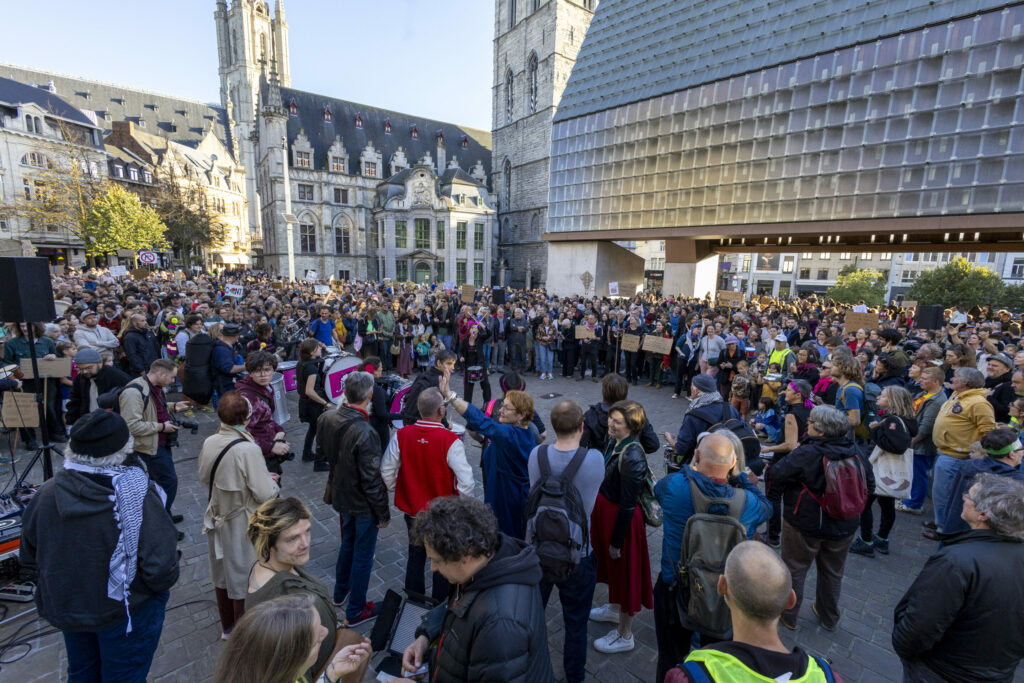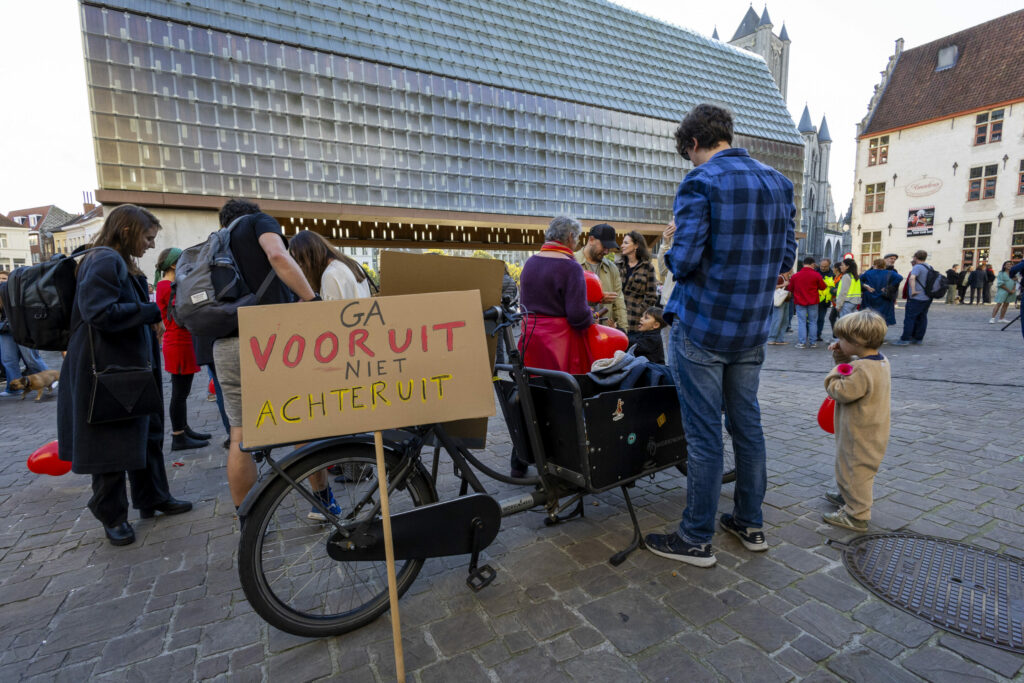Ghent has been gripped by a political tussle which has tested relationships between parties and infuriated many residents in the wake of the communal elections on 13 October.
The city in East Flanders stands out for its progressive political orientation. Whilst right-wing N-VA and far-right Vlaams Belang were dominant in the June federal elections, Ghent was an island of left-wing support with socialists Vooruit coming out on top, followed by Groen (greens) and N-VA in third place.
But divisions between left-of-centre parties have come to the fore in October's local elections, as long-standing tensions between the socialists and the greens led Vooruit to partner with Open VLD under the banner "Voor Gent", a joint list that won the largest share of votes (32.5%). Groen came second with 24.6% and N-VA third with 17.8%.
To secure a majority, Voor Gent looked to N-VA despite the right-wing party being ideologically distant from Vooruit, of which Ghent is the historic stronghold. Many of the city's residents were vocal in their opposition to bringing N-VA into power when a strong majority of the electorate voted for left-leaning lists.
The outrage was on display over the weekend, as large protests took place in the city centre. According to police estimates around 3,000 people gathered on Sunday afternoon to denounce the inclusion of the N-VA in the new local government coalition with liberal and socialist parties.

The protest on Sunday 27 October 2024. Credit: Belga / Nicolas Maeterlinck
"There is no N-VA in Ghent's DNA," crowds chanted. For over a week, hundreds have been protesting every evening against the new coalition, which cuts Groen out of power after 12 years in a governing majority. But despite the popular indignation, Voor Gent pushed ahead with the N-VA deal.
Importantly, the schism reflects national politics as N-VA is leading federal negotiations and trying to strike a deal that includes Vooruit. For the protestors, the alliance taking shape in Ghent overlooks the will of the city's residents. Though Voor Gent insists that their priority is to secure the best deal for the city.
A last-minute rupture
But in the eleventh hour negotiations took a turn. Whilst Open VLD was set to sign a majority with N-VA, Voor Gent's socialist members decided against it with many citing their unease about partnering with the right-wing N-VA. This apprehension was amplified by local environmental organisations, the socialist union ABVV, and the Young Socialists, which have together manned the daily protests outside Ghent Town Hall.
The fallout saw formator and outgoing mayor Mathias De Clercq (Open Vld) quit. The initiative to lead formation discussions now passes to Groen, which has vowed to deliver a "progressive political future" for the city.
Despite Vooruit's rejection of Groen, the Greens say they are ready to open discussions with the Socialists – a numerical necessity if they are to relegate N-VA to the opposition.
"We commit to a calm, open, and serious discussion with Voor Gent, as the people of Ghent deserve. We have managed things well in recent years, and there are many common points between our projects," Groen Ghent announced on Facebook.
Hafsa El-Baziuoi, who won the most preferential votes for Groen and is therefore likely to lead the new negotiations, acknowledged that "There are deep wounds (with Voor Gent) and we need time and empathy for them to heal."
In recognition of the need to bridge the gap that has opened between Vooruit and Groen, Joris Vandenbroucke – chairman of Vooruit Ghent – has stepped down and will not participate in discussions with Groen. "We need to start with a clean slate," he said.

Vooruit's Conner Rousseau at a meeting to form the next Federal Government. Vooruit is an outlier in these discussions and has been at odds with coalition partners. A partnership between Vooruit and N-VA in Ghent would likely bolster Vooruit's standing in the federal discussions. Credit: Belga
The implications of such a messy fracas in the national negotiations are unclear, though political journalist Bart Verhulst explains that Vooruit might have gained some influence in national affairs if it allowed N-VA to enter government in Ghent.
The strategic importance of Ghent in the broader national context was further implied in an email sent by Vooruit chairman Conner Rousseau to party members in Ghent. In it, he stressed the progressive elements of the deal that had been negotiated with N-VA, arguing that it stayed true to Vooruit's socialist principles.
The Voor Gent–N-VA proposal included free public transport up to the age of 18, free school meals, a maximum bill in secondary, 20% social housing, and extra practice tests. All of which are policies designed to appeal to a socialist voter base.
But his words failed to persuade party members, who turned down the deal with N-VA hours later.

